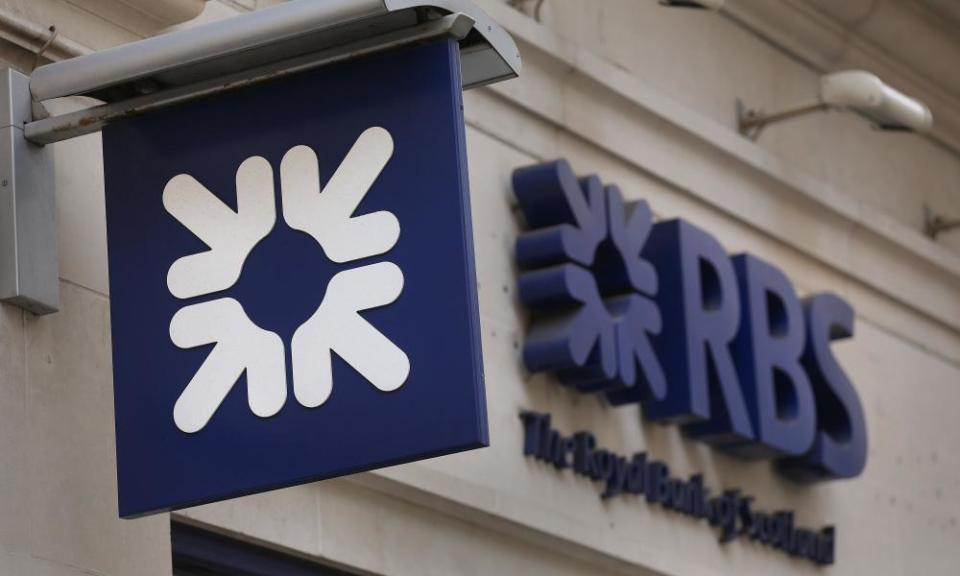RBS reports first quarterly profit since 2015 as it tries to turn corner

Royal Bank of Scotland has reported its first quarterly profit since 2015, as its management hopes it has started to turn a corner after nine years of losses since its £45bn bailout during the financial crisis.
The bank, 73% owned by the taxpayer, reported a £259m profit in the first quarter of 2017. The last time it turned a quarterly profit was the third quarter of 2015.
It warned that profits would be down in the next quarter, however, because of a slower start in its investment banking arm.
Its shares rose 2% to 258p, but this remains well below the 502p price on which the taxpayer breaks even for bailing out the bank. The contrast with Lloyds Banking Group, also bailed out during the crisis, is stark. As RBS was announcing its results, it was disclosed that the taxpayer stake in Lloyds – which stood at 43% at its peak – had fallen to below 1%.
The chancellor, Phillip Hammond, declared last week that the government has recouped the £20.3bn that was ploughed into Lloyds and admitted the government would have to sell off the remaining RBS stake at a loss.
Ross McEwan, the RBS chief executive, said there was no need for an apology. “I don’t think it’s a matter of an apology; we just have to go back to when the government stepped in. The price that was paid was the price of the day. It was the right thing to do to save the bank,” he said.
He expects RBS to make a full-year profit in 2018 after incurring another loss this year, its 10th consecutive loss since the bailout.
McEwan said: “This bank has a very strong core with great potential, and we believe that by going further on cost reduction and faster on digital transformation, we will deliver a simpler, safer and even more customer-focused bank, with a compelling investment case.”
He highlighted the fall in costs for misconduct, the increase in income in the core bank and a reduction in costs – which will fall by £750m this year – which helped generate an operating profit of £1.3bn during the first three months of the year.
Some 16,000 jobs have been cut in the past year – taking the total number of employes to 76,200 – and more branches will be shut on top of the 158 closures announced last month. Landmark offices in London have also been shut.
The bank is being held back by potential multibillion-pound fines in the US over the mis-selling of residential mortgage backed securities (RMBS) in the run-up to the 2008 financial crisis and the continuing uncertainty over the way it will appease the EU over the disposal of 300 branches - called Williams & Glyn (W&G) – which were mandated because of the bailout.
“Subject to dealing with RMBS and W&G this year, we anticipate being profitable in 2018, and are on course to deliver our targets for 2020,” said McEwan.
The bank is preparing to go to court next month to defend a case being brought by shareholders over allegations they were misled during a fundraising in 2008. The investors are calling former chief executive Fred Goodwin to give evidence.
While the bank’s legal charges were £54m during the quarter – up from a year ago –they were lower than the £4bn incurred in the last quarter of 2016.
Even so, RBS still highlighted a number of legal matters including the Russian money-laundering scandal reported by the Guardian. “Allegedly certain European banks, including RBS and 16 other UK-based financial institutions, and certain US banks, were involved in processing certain transactions associated with this scheme,” RBS said, adding it was “responding to requests for information from” regulators.

 Yahoo Finance
Yahoo Finance 